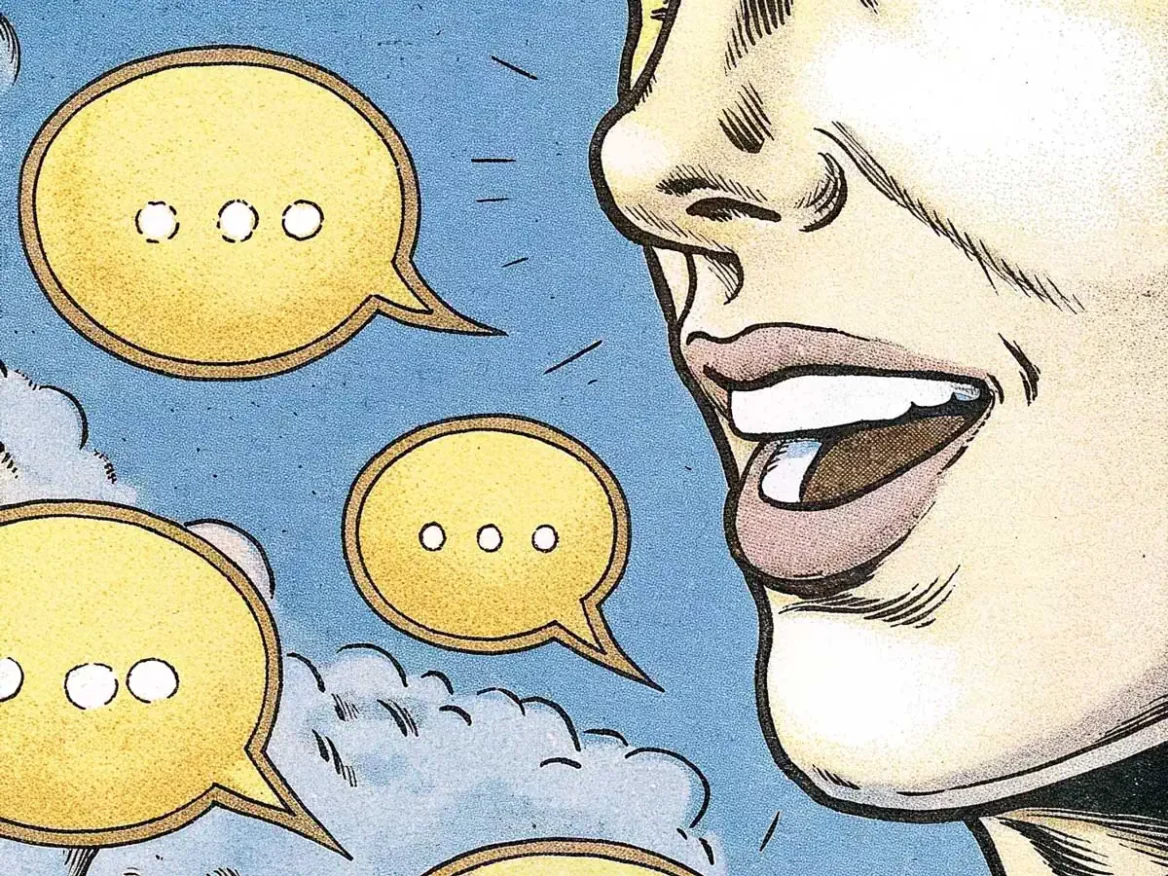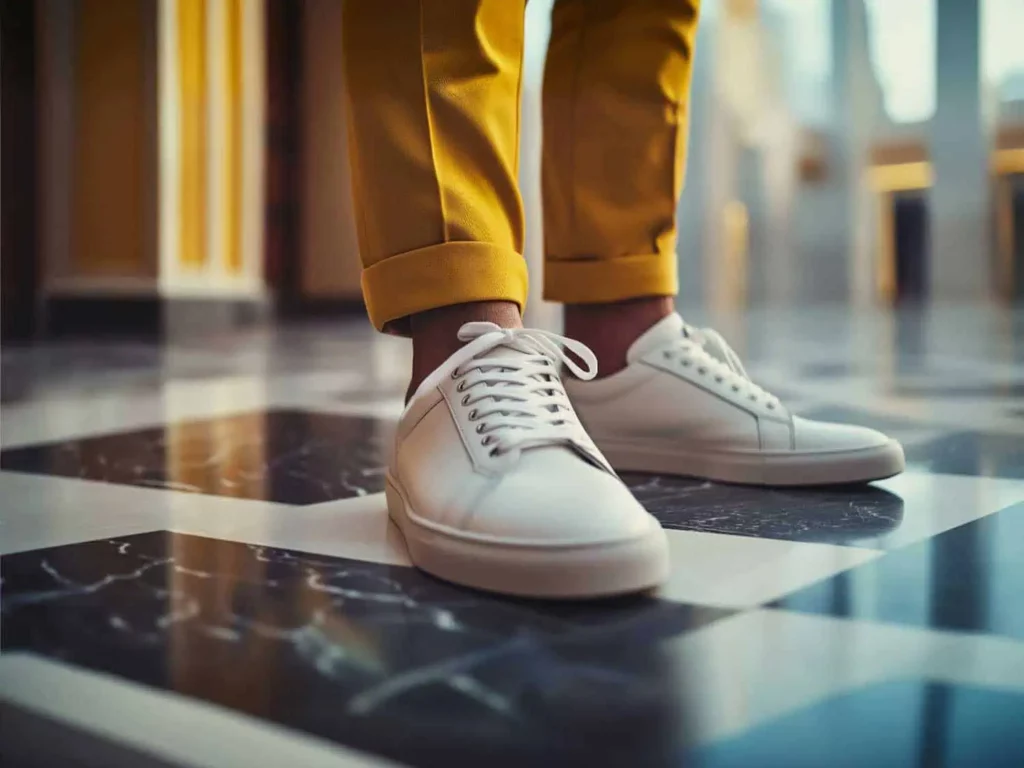RUMAG takes English-language quotes from the internet, translates them, and sells them as its own work. But what is the legal situation? Are these texts copyrighted? I analyse.
Last Sunday, the satirical television programme Zondag met Lubach focused on the business model of lifestyle platform RUMAG. The company, which has its own YouTube channel and webshop, is best known for its eye-catching texts with white letters on a black background, where the.spaces.between.the.words.are.replaced.by.a.dot.
Translations of English quotes
Lubach’s item explains that RUMAG’s trendy quotes are (in most cases) not made up by herself, but are translations of English-language quotes (thought up by others) circulating on the internet.
RUMAG then puts the Dutch version of the quote through the recognisable RUMAG paint and posts it online. To get an idea of RUMAG’s modus operandi, I point to the Twitter account RU.MAY.NOT.STATE. which fanatically tracks which of RUMAG’s witticisms do not appear to have been thought up by her.
Sales via own shop
What Lubach stumbles over (among other things) is that RUMAG also uses the copied (translated) texts on clothes, home furnishings and accessories, among others, and then sells it through its online shop. In other words: RUMAG makes money from someone else’s work.
RUMAG itself acknowledges this. In an interview with the Fontys Think Bigger Debate, founder and owner Thijs van der Heide discusses RUMAG’s adoption of English-language quotes.
‘Grey area’
In his view, this is ‘grey area’. RUMAG’s statement following the Sunday with Lubach broadcast even states that RUMAG is not a journalistic organisation “and plays by the rules of the worldwide web.
We produce content ourselves and select relevant global content for our audience.’ During the Fontys Think Bigger Debate, journalist Harry Hol points out to Van der Heide that RUMAG does not operate in a grey area. On the contrary: the texts RUMAG copies are copyrighted and copying them as RUMAG does is not allowed, Hol said.
But is this really the case?
These laws apply
To answer this question, it is important to know what laws and regulations apply at all. RUMAG is based in the Netherlands, its activities (and any infringing acts) take place in the Netherlands and are also aimed at Dutch consumers.
All these factors mean that (at least given the law within the European Union) Dutch law applies, more specifically the Dutch Copyright Act. The grey area rules in which RUMAG operates and the worldwide web rules followed by it are irrelevant in this matter.
The Copyright Act must be used to assess whether the texts reproduced by RUMAG are copyrighted.
Copyright protection
A text is eligible for copyright protection when it shows a certain degree of creativity. This means that it should not be copied from a text written before.
In addition, it must also be the result of a product of the human mind, or, in other words, creative choices. If a text is so banal or trivial that no creative work can be identified, it is not eligible for copyright protection.
Lots of creativity
In general, the threshold for obtaining copyright protection is quite low. In the case of a longer piece of text, such as a book, article or blog, it will therefore (in principle) quickly be assumed that it is a copyrighted work. After all, a lot of creativity can be put into a story, without the piece resembling someone else’s.
This can be trickier when it comes to a shorter piece of text, such as, for example, an anecdote in a Tweet or a Facebook post. The highest legal body within the European Union (the Court of Justice) has ruled that the choice, arrangement and combination of words in an original way can make a piece of text copyrightable.
Sense of creativity
This may mean that individual sentences, or even phrases of texts, may contain a certain degree of creativity and thus be eligible for copyright protection (see ro. 45-48).
Yet the threshold for obtaining copyright protection is higher for a single sentence. The Court of Appeal of The Hague, for instance, ruled that the sentence ‘Zo. Now first a Bavaria’ is not a choice, arrangement or combination of words in an original way and for that reason is not a copyrightable text.
For a short piece of text consisting of several sentences (such as RUMAG’s texts), the threshold will possibly be higher than in the case of a longer text, and lower than in the case of a single sentence.
If a piece of text does have copyright protection then it is (legally) referred to as a ‘work’. The creator of the work (‘the maker’) then (in principle) has the right to prohibit anyone who has not been given permission to do so from publishing and reproducing its work. Among other things, translating a work requires the creator’s permission.
Translation of short texts
And so we come back to the texts ‘from’ RUMAG: short texts translated into Dutch. The question is whether the English-language quotes contain enough creativity to qualify as a copyrighted work.
It is of course up to the courts to make the final judgment on this, but it is very plausible that at least some of these texts may qualify as works, given the threshold for obtaining copyright protection.
Since RUMAG often copied the texts one-to-one (it merely translated the texts which, as mentioned, requires permission), copyright infringement does occur in these cases.
Exceptions to the rule
Incidentally, there are exceptions to the rule that disclosing or reproducing a work entails actual copyright infringement. For the sake of the scope of this piece, this article will not go into this in detail, but will suffice here briefly to say that probably none of these exception will provide solace to RUMAG.
RUMAG’s luck – or, as Hol put it, “the Trumpian impudence” – has so far led it to go about its business unhindered for the past five years. After all, the creators of the works most likely know nothing about the infringing practices taking place in our little chickadee.
Intellectual property rights
Many creators probably do not even know that they are creators and that they can invoke intellectual property rights. And even if they were aware of it, face it: litigating about whether your 280-character Tweet is protected by copyright, with all the risks and hurdles that litigation entails.
This is all the more true if a creator does not live in the Netherlands, which will be the case for most authors of the works adopted by RUMAG. As a result, the ‘chance of being caught’ for RUMAG is low. Of course, this does not detract from the fact that copyright infringement has occurred.
Carefree RUMAG
RUMAG is not concerned (at least until recently) about possible litigation and has already made its position on its revenue model clear: During RUMAG’s aforementioned interview at Fontys Think Bigger Debate, journalist Hol notes that RUMAG apparently thinks it’s OK to make money from someone else’s creativity. To this, Van der Heide replies firmly and clearly: ‘absolutely’.


